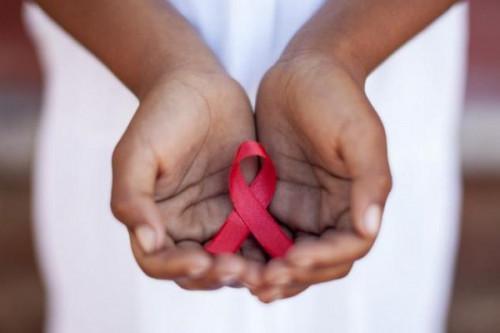Reflecting on the Past, Envisioning the Future: Global Fund Grant Cycle 7
- November 16, 2023
- Africa / HIV / Malaria / Tuberculosis
- By Djesika Amendah
- Read in French

The scenario on HIV, Tuberculosis and Malaria (HTM) in Africa indicates that among the three diseases, HIV has the lowest gap to attain the Sustainable Development Goal 2030 target. However, although there has been very strong progress in reducing AIDS-related deaths in countries supported by the Global Fund, progress is mixed, varying significantly between regions. For instance, most significant reductions in new HIV infections were in Sub-Saharan Africa.
On the other hand, TB continues to be a significant public health problem in the WHO African region, which accounts for 23% of new cases and 31% of TB-related deaths, despite making up only 15% of the world’s population. The heavy burden of HIV in the region is reflected in the 20% of new TB cases that are reported among people living with HIV and AIDS. Importantly, the gap between the estimated number of TB cases and the number of notified cases remains large, with gaps in recording the actual number of Drug-Resistant TB cases even larger. An added challenge is the identification of TB cases among children.
More worryingly, malaria cases have increased while progress against the disease has stalled, jeopardizing our precious gains and threatening our ability to make further progress. 95% of malaria cases and 96% of malaria deaths happened in Africa, with just over half of all malaria deaths worldwide recorded in four African countries: Nigeria (31.3%), the Democratic Republic of Congo (12.6%), the United Republic of Tanzania (4.1%) and Niger (3.9%).
COVID-19 demonstrated that we cannot look only at one disease and disregard the system on which it is based. At the country level, often it is the same facility and staff that is in charge of the three diseases and of the other diseases for which the health system is used. The solution resides in more country ownership and alignment with local plans. To what extent are Africans allowed to find local solutions to local problems? As it is, the concepts and tools for fighting malaria, for instance, are all imported leaving little space for local solutions. It is important to give more space to communities and community systems instead of basing most activities around health centres. While the biomedical approach is vital to treat diseases, prevention need not to be only bio-medical.
The ESA and WCA Constituencies agree with the severity of the risks to communities and their progress on health equity, human rights and gender equality. The African heads of state have planned a meeting in early 2024 to refocus on the unfinished fight against HIV and to discuss financing. African leaders have also renewed the fight against malaria, a prime example being Nigeria. Efforts are also afoot to ensure universal health coverage to be truly universal is extended to all without discrimination.
We agree with the strengths and challenges the Global Fund faces in supporting countries in building resilient and sustainable health systems (RSSH). In countries under the Additional Safeguards Policy, the Country Coordinating Mechanism ends up as a referee between the government that is in the driving seat for RSSH and the international NGOs who are the Principal Recipients during grant writing and the early stage of grant-making. In countries that are not under the Additional Safeguards Policy, we have a learning health system. But part of the problem is that our countries have strategic plans to combat HTM but none for building their RSSH. Understanding complementarity is also necessary. For example, Senegal has developed an integrated strategic plan for HIV, tuberculosis and malaria to optimize resources. But the country is cognizant of issues like climate change, challenging operating environments, and population movements associated with insecurity challenges.
We do need stronger country ownership, more efficient use of available resources, a longer time period and the appropriate people and institutions with expertise in pandemic preparedness and health systems at the table to combat HIV, TB and malaria. However, disease specialists are not always the best people to discuss and implement Health Systems Strengthening.
At the same time, thinking outside the box by the Global Fund is also much needed. Its definition of what constitutes RSSH, for instance, is very restrictive. In Ghana, the government set up a system of drones for last-mile delivery. But this kind of investment does not fall within the ambit of RSSH as envisaged by the Global Fund. Such a decision is hard to understand considering the need to improve supply chain in Ghana. Similarly, the African Union has an ongoing Initiative on Positive Masculinity: Men as Champions to end Violence Against Women and Girls in Africa with heads of state as Champions. We wonder if there is a possibility to work with the African Union (AU) on this agenda and if it can improve outcomes.
The Global Fund is adopting a more ambitious and systematic approach in GC7, including through purposeful partnerships, requirements such as the Gender Equality Marker, and new definitions and guidance to support assessment of human rights and gender equality risks in country, program and grant contexts, to identify appropriate mitigation strategies. However, bringing quality programs to scale remains a challenge in responding to risk in the current political climate and building a more ambitious and systematic approach. Africans must be involved in the solutions and their voices heard.
Dr Djesika Amendah


